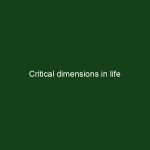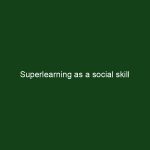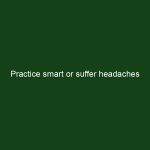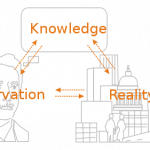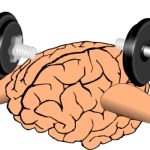Finding a balance in one’s life is difficult for everyone, but is is even more so for superlearner. Having the ability to learn virtually anything extremely fast puts an extra strain on the curiosity. Recently I had a meeting with Jonathan. Since reaching higher superlearning abilities he reads less (not more!). I asked him why. Jonathan …
Using search engines for research
We have a specific set of lessons regarding usage of search engines. But rather than concentrating on the technical subjects of web search, in this article I want to address come creative aspects. When we try to search for answers it is interesting to consider the issue from various perspectives: the issue we are looking …
Superlearning: are there any limitations?
After reaching 1000wpm at 80% comprehension a superlearner feels that he/she owns the world and that the sky is the limit. But wait for a month or two and there is disappointment “I reached my limit?”, rationalization “I do not need to read any faster?”, bargaining “Can I read with the same speed in a …
Continue reading “Superlearning: are there any limitations?”
Critical dimensions in life
So far I tried to keep most of the post pretty much centred along the superlearning axis of visualization-speedreading-knowledge. However occasionally I plan to look at things from wider perspectives. Today I want to express the way I feel about certain things in my life, or human life in general. People do have other very …
Having problems concentrating when reading
Some of our students have problems concentrating over boring or complex texts. I also have similar problem with some challenging texts. What usually works for me is rereading the text using various mindsets. I am asking myself: 1. How can I use this information? 2. Why is it different from common knowledge? 3. What is …
Continue reading “Having problems concentrating when reading”
Having fun with visual markers
One of the things we teach is having fun with visualization. We show plenty of examples, and then the students always say: “I am not that creative”. Well, guess what – nobody is THAT creative. We learn to be creative with markers, we are not born this way. The first thing Anna usually teaches after …
Superlearning as a social skill
When we started teaching superlearning skills we soon realized that social interaction improves the learning experience significantly. First of all, everybody thinks slightly differently and there is a lot we can learn from each other. Then, everybody has some issues when learning new habits, seeing other people struggling with the same problems improves determination. Finally, …
Practice smart or suffer headaches
Some of our students occasionally report headaches. There are many sorts of headaches, but they have one thing in common: wrong technique. There are many common ideas between going to gym and training your brain. Just like bad practice in gym can cause back aches and orthopaedic damage, bad practice with your brain can cause …
Knowledge and its support
This is a common mistake, a mistake that I do, and I do it even now after many years of training… Taking things that I know for granted… What facts support our knowledge? What resources do we use? Who are the authority figures behind current paradigm? What was the previous paradigm? Probably nothing is truly …
Brain science and reading
Being an engineer and having some understanding of brain activity, I enjoy comparing brain to an electronic device. Many complex electronic devices I work with have the following 3 elements: CPU to handle complex logic, GPU to analyse a lot of simple and repetitive information in a fast and parallel form and dedicated RTL circuitry …




